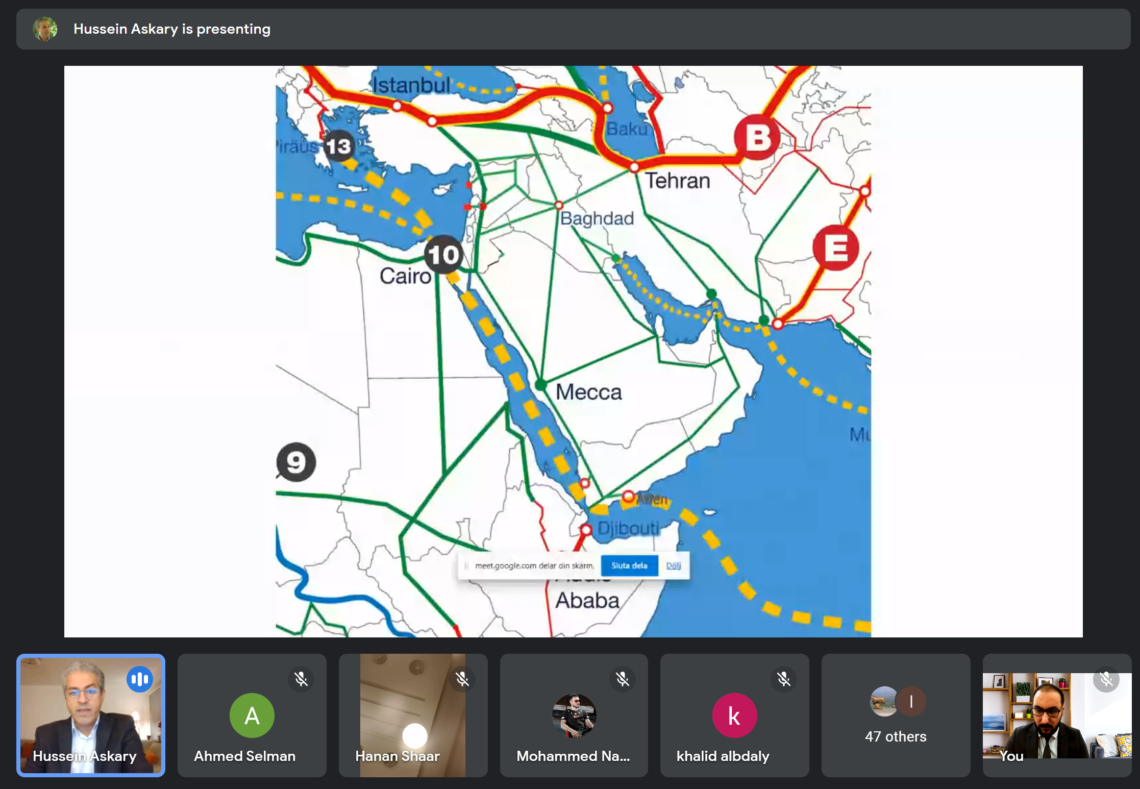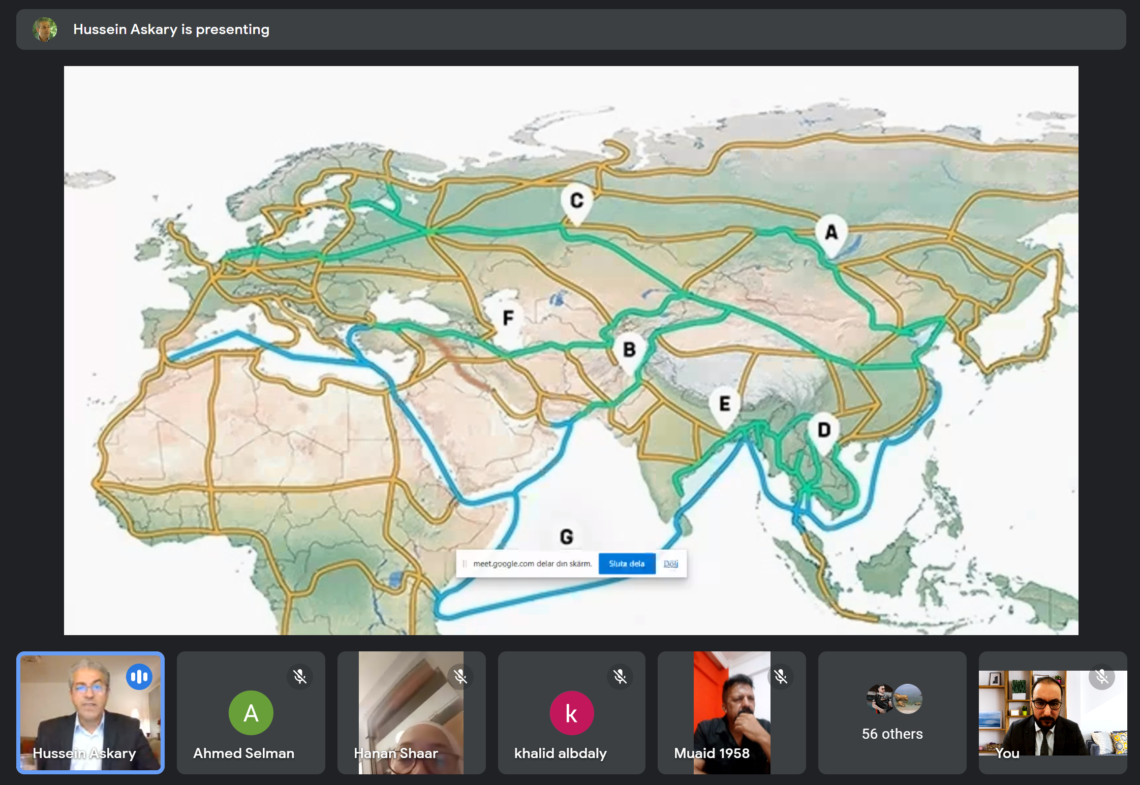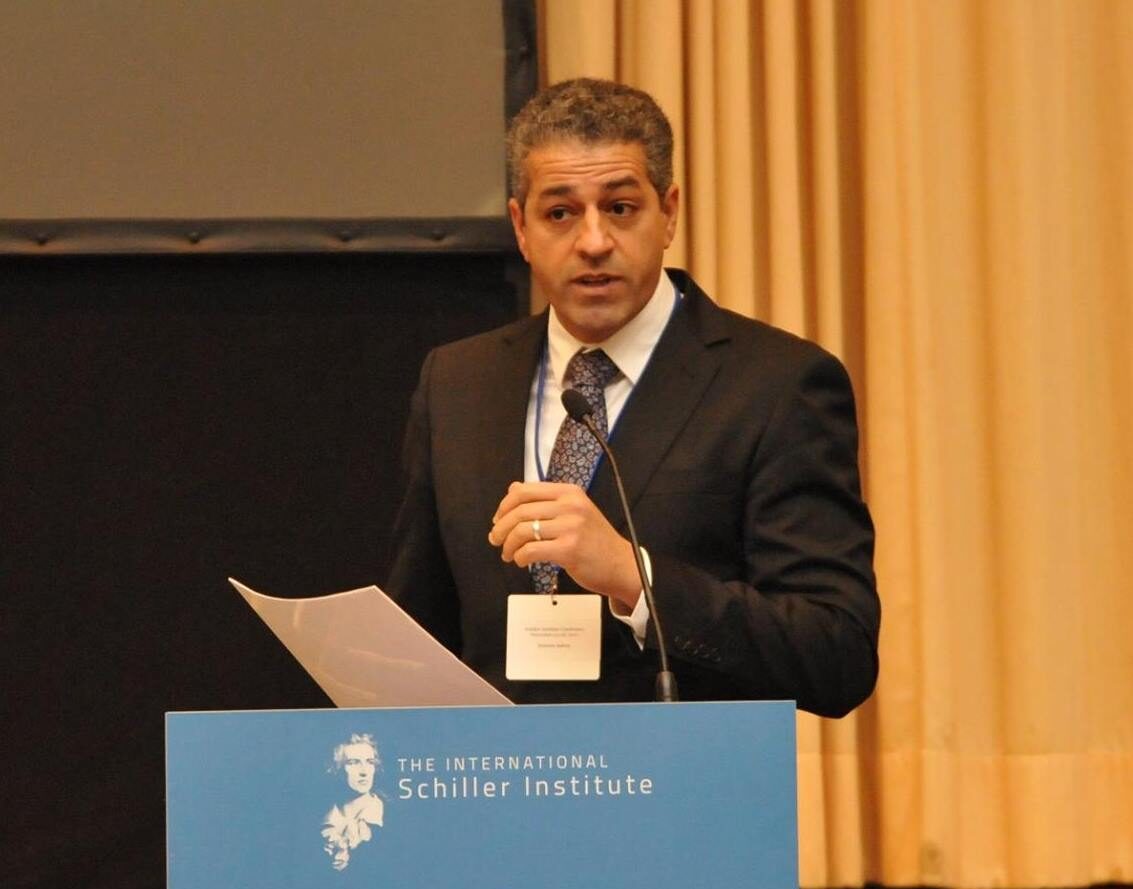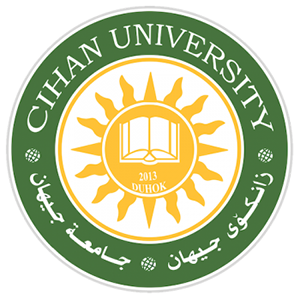للحصول على أسماء الحاضرين الرجاء أضغط هنا
Yesterday, Tuesday, 27.09.2022, the Research Center at Cihan University – Duhok held an international webinar entitled “The Importance of the Belt and Road Initiative for Iraq and the Middle East“,
🎙️Hosted by the speaker:
– Mr. Hussein Askary, Economic and Strategic Analyst in the Schiller Institute (Germany) and Vice-Chairman of the Belt and Road Institute in Sweden (BRIX).
🎙️ Session management:
– Dr. Nawar Al-Saadi, Professor of International Economy and Director of the Research Center at Cihan University.
Session Summary
Mr. Al-Askary started talking about Webinar: The Importance of the Belt and Road Initiative for Iraq and Neighboring Region
The Research Center of the Cihan University in Duhok, Iraq, organized a virtual seminar (webinar) on September 27 on the theme of “The Importance of the Belt and Road Initiative for Iraq and Neighboring Region”, featuring as the keynote speaker Hussein Askary, Economic and Strategic Analyst in the Schiller Institute (Germany) and Vice-Chairman of the Belt and Road Institute in Sweden (BRIX). The webinar was moderated by Dr. Nawar Al-Saadi, Professor of International Economy and Director of the Research Center at Cihan University.
The main presentation was in four parts:
1. Genesis and nature of the Belt and Road Initiative (BRI).
2. Iraq’s relationship to the BRI and cooperation agreements with China.
3. Why it is vital to join the BRI and cooperate with China on reconstruction.
4. Problematic aspects of the BRI and skepticism.
Askary gave a detailed overview of the origins of the idea of reviving the Silk Road as a means of establishing peace between East and West and bringing economic development to the vast regions of Eurasia after the fall of the Berlin Wall and dissolving of the Soviet Union. The speaker presented archive materials on the pioneering role of the Schiller Institute and American Economist Lyndon LaRoche in this field. The first comprehensive study of this project was a report produced in 1997 by the Schiller Institute titled “The Eurasian Land-Bridge, New Silk Road: Locomotive for Worldwide Economic Development.” The main thrust of this project is to build regional and transcontinental “development corridors” to connect the largest concentrations of industrial technology in the West with the largest concentration of population in the East. All the nations in between will benefit from these new corridors that include railways, roads, electric power lines, oil and gas pipelines and water management systems. These corridors both contribute to breaking the isolation of landlocked nations, such as in Central Asia, and augment their natural and human resources through building new agro-industrial and urban centers around these corridors.
While this idea did not mature in the Europe, China already saw this as an important part of its strategic and economic policies already in 1996. However, the idea came to fruition in 2013 with the announcement of President Xi Jinping of the launching of the Economic Belt of the New Silk Road and the Maritime Silk of the 21st Century in September and October of that year. In March 2015, China outlined the full scope of this initiative, now called the Belt and Road Initiative (BRI), in a document issued by the National Development Reform Commission (NDRC) titled “Vision and Actions of Jointly Building the Economic Belt of the New Silk Road and the Maritime Silk Road of the 21st Century.”

Askary explained the motives of China behind launching this initiative and the financial, technical political capacities it put behind it. These can be summarized as: A. Securing its economic growth through new market opportunities, especially after the hard lesson learned by China in the aftermath of the 2008 financial crisis of excessive reliance on the American and European markets, B. Opening up new partnerships and securing supplies of raw material and supply chains, C. utilizing its massive financial surplus and unprecedented engineering and industrial capacity that is direly needed in developing sector nations. D, enhancing south-south cooperation to ward off Western political pressures, and creating a community of shared future based on adherence to UN Charter.
Iraq signed the Memorandum of Understanding to join the BRI in December 2015, and signed a joint declaration with China for establishment of a strategic cooperation agreement during the visit by Prime Minister Haidar Al-Abadi to Beijing. However, these formal agreements did not materialize.

In May 2018, Iraq signed the Export Credit Insurance Cooperation Framework, the so-called “oil for reconstruction” agreement. This latter agreement was activated during the visit by next Prime Minister Adel Abdel-Mahdi to Beijing in September 2019. However, the political upheaval that followed that visit in Iraq blocked the implementation of this arrangement.
Iraq is located on one of the BRI’s main corridors called China-Mediterranean-Gulf Corridor through Central and West Asia. The importance of Iraq of actively joining the BRI are many:
1. Iraq has a chronical financial budget deficit which prevents capital investments in badly needed infrastructure projects such as power generation, transport, irrigation and water management systems in addition to education and healthcare. China can provide the needed credit on a long-term basis with Iraq being able to finance the credit through a small portion of its oil exports.
2. China has developed some of the most advanced engineering capacities in the world in the fields of railway, bridges, roads, dams, power plants etc. This guarantees quick, cost-effective and efficient reconstruction projects. 3. Iraq needs a stable trade partner with a long-term stable economic vision such as China, which has a vision extending to 2049.
4. Cooperation on this set of projects can create large employment opportunities for the unemployed Iraqi youth. 5. Augmenting the benefits of Iraq’ natural resources such as oil, gas, minerals, water and geographical location through building new industries and agricultural projects. Iraq’s location near large markets in Europe and Africa makes it ideal for establishing new industries.
6. China is an ideal economic partner since it does not intervene in the internal political and economic affairs of the country which is a victim of constant interventions by regional and global powers.

The final part of the presentation which was merged into the discussion period is related to the negative views of the BRI and China’s policies visa-a-vis other economic partners. The speaker explained that there are many aspects of this negative view which are a creation of Western interests who see China as a competitor and threat. Zero-sum mentality and geopolitical manipulations, which is a result of the historical fight and competition between Western empires in the past few centuries, is too dominant in the region. China is seen as an emerging power which is stooping now to conquer later. The speaker indicated that it is important to understand the Chinese governance philosophy and history rather than projecting the Western history upon China.
The Q&A session was very lively and many educated views were presented by economists and political experts. The total number of attendants was 100 participants.












